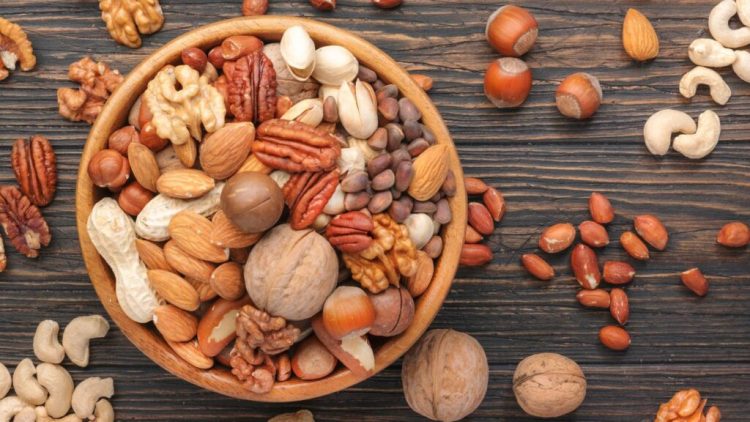Good nutrition is a cornerstone of oral health. Calcium and vitamins are essential nutrients that help maintain strong teeth and healthy gums. By incorporating the right foods into your diet, you can provide your body with the necessary nutrients to protect and strengthen your smile. Below, we’ll explore the foods that are rich in calcium and vitamins, highlighting their specific benefits for your oral health.
1. Dairy Products: The Ultimate Calcium Source
Examples: Milk, cheese, yogurt
Dairy products are some of the best sources of calcium, which is essential for building and maintaining strong teeth and bones. Calcium helps remineralize enamel, the protective outer layer of your teeth, and supports the structure of your jawbone.
- Cheese: Particularly hard cheeses like cheddar and Swiss are rich in calcium and low in sugar, which is ideal for preventing tooth decay.
- Yogurt: Plain, unsweetened yogurt is an excellent choice as it contains both calcium and beneficial probiotics, which can promote gum health by balancing bacteria in the mouth.
Why they help:
- Strengthens tooth enamel.
- Supports bone density, reducing the risk of tooth loss.
- Helps to neutralize acids in the mouth, which can erode enamel.
2. Leafy Greens: A Vitamin and Calcium Powerhouse
Examples: Spinach, kale, collard greens, bok choy
Leafy greens are loaded with calcium, vitamin C, and other essential vitamins. Vitamin C is vital for gum health and supports the formation of collagen, which keeps your gums strong and resilient.
- Spinach and kale contain both calcium and vitamin K, which helps maintain bone health.
- Collard greens and bok choy provide a good amount of calcium and are rich in fiber, which can help clean your teeth while chewing.
Why they help:
- Promote healthy gums by preventing gum disease.
- Calcium helps strengthen tooth enamel.
- Vitamin C helps prevent gum bleeding and inflammation.
3. Fatty Fish: A Source of Vitamin D and Omega-3s
Examples: Salmon, mackerel, sardines, herring
Fatty fish are a great source of vitamin D, which is essential for the absorption of calcium. Without enough vitamin D, your body cannot absorb calcium properly, which can weaken your teeth and bones.
- Salmon and sardines also provide omega-3 fatty acids, which help reduce gum inflammation and support overall oral health.
- These fish are rich in vitamin A, which promotes healthy mucous membranes in the mouth and helps maintain healthy gums.
Why they help:
- Vitamin D ensures that calcium is properly absorbed and utilized by the body.
- Omega-3s reduce inflammation in the gums, helping to prevent gum disease.
- Vitamin A supports gum health and tissue repair.
4. Fortified Plant-Based Milk and Alternatives
Examples: Almond milk, soy milk, oat milk
For those who are lactose intolerant or prefer non-dairy options, fortified plant-based milk can be an excellent source of calcium and vitamin D. These plant-based alternatives are often fortified with both nutrients, providing similar benefits to dairy products.
- Almond milk and soy milk are rich in calcium and vitamin D, which are crucial for strengthening teeth and bones.
- Fortified plant-based milks often contain additional vitamins like vitamin B12, which is important for overall health.
Why they help:
- Strengthen tooth enamel and promote bone health.
- Provide an excellent non-dairy option for those looking to increase their calcium intake.
5. Citrus Fruits: Rich in Vitamin C for Gum Health
Examples: Oranges, grapefruits, lemons, kiwis
Citrus fruits are packed with vitamin C, which is essential for healthy gums. Vitamin C helps prevent gum disease by promoting collagen formation and reducing inflammation.
- Oranges and grapefruits are excellent sources of vitamin C and antioxidants.
- Kiwis provide even more vitamin C than oranges and are gentle on tooth enamel.
Why they help:
- Vitamin C helps prevent bleeding gums, gingivitis, and gum recession.
- Promotes healing of gum tissues.
- Supports collagen production, which is vital for healthy gums.

6. Nuts and Seeds: Small but Mighty Nutrient Sources
Examples: Almonds, walnuts, sunflower seeds, chia seeds
Nuts and seeds are rich in calcium, phosphorus, and magnesium—three essential nutrients for maintaining strong teeth and gums.
- Almonds are particularly high in calcium and also contain healthy fats that promote overall oral health.
- Chia seeds and sunflower seeds provide a good source of fiber, which helps to keep your teeth clean and stimulate saliva production.
Why they help:
- Help strengthen teeth and support remineralization of tooth enamel.
- Promote healthy gums and tissue healing.
- Provide healthy fats that help reduce inflammation in the gums.
7. Bell Peppers and Other Colorful Vegetables
Examples: Red bell peppers, broccoli, carrots, sweet potatoes
Brightly colored vegetables like bell peppers and carrots are rich in vitamin A and vitamin C, both of which are important for oral health.
- Vitamin A helps maintain healthy mucous membranes and skin, including the tissues in your mouth.
- Vitamin C promotes gum health and helps prevent gum disease.
Why they help:
- Vitamin A and C support healthy gums and teeth.
- Provide antioxidant protection to neutralize free radicals in the mouth.
- Help to reduce the risk of gingivitis and gum infection.
8. Eggs: A Natural Source of Vitamins D and A
Examples: Whole eggs, egg yolks
Eggs are an excellent source of vitamin D and vitamin A, both of which are essential for maintaining healthy teeth and gums.
- Vitamin D supports the absorption of calcium, while vitamin A helps maintain healthy gums.
- Egg yolks are particularly rich in vitamin D, which helps ensure that calcium is absorbed properly into the bones and teeth.
Why they help:
- Vitamin D helps strengthen teeth and bones by ensuring calcium absorption.
- Vitamin A supports gum tissue health and helps prevent dryness or irritation.
Conclusion
A balanced diet rich in calcium, vitamin D, vitamin C, and vitamin A is essential for maintaining healthy teeth and gums. By including dairy products, leafy greens, fatty fish, fortified plant-based milks, citrus fruits, nuts and seeds, and colorful vegetables in your diet, you can provide your body with the nutrients it needs to promote strong enamel, prevent gum disease, and support overall oral health.
Remember, a healthy smile begins with a nutritious diet, so make these foods a part of your daily routine for a confident, long-lasting smile.













































Discussion about this post